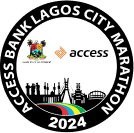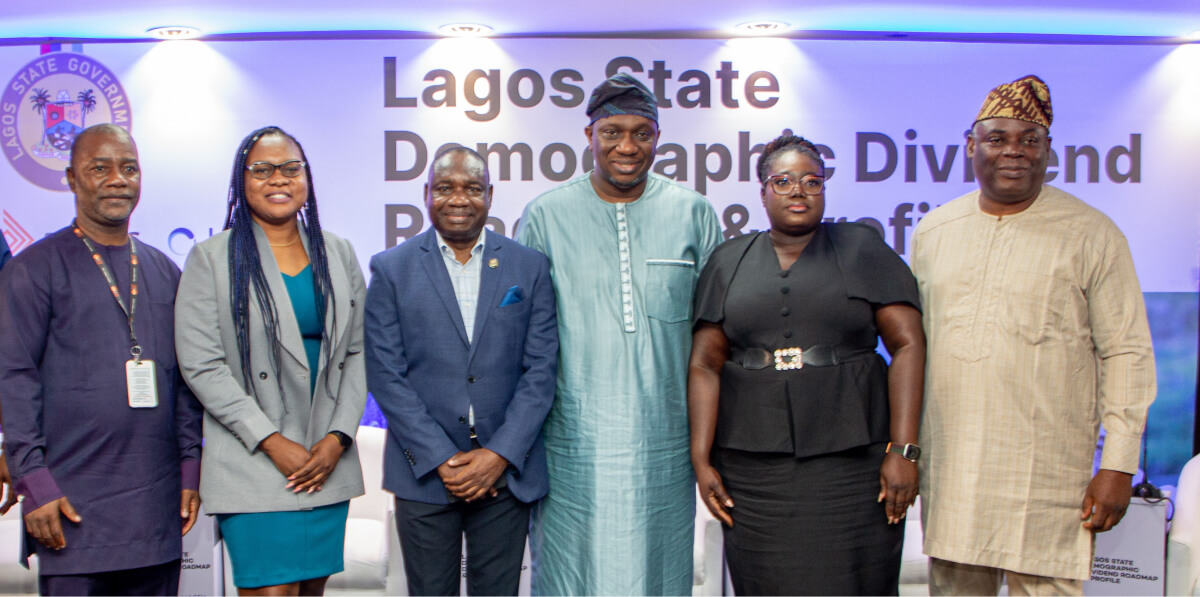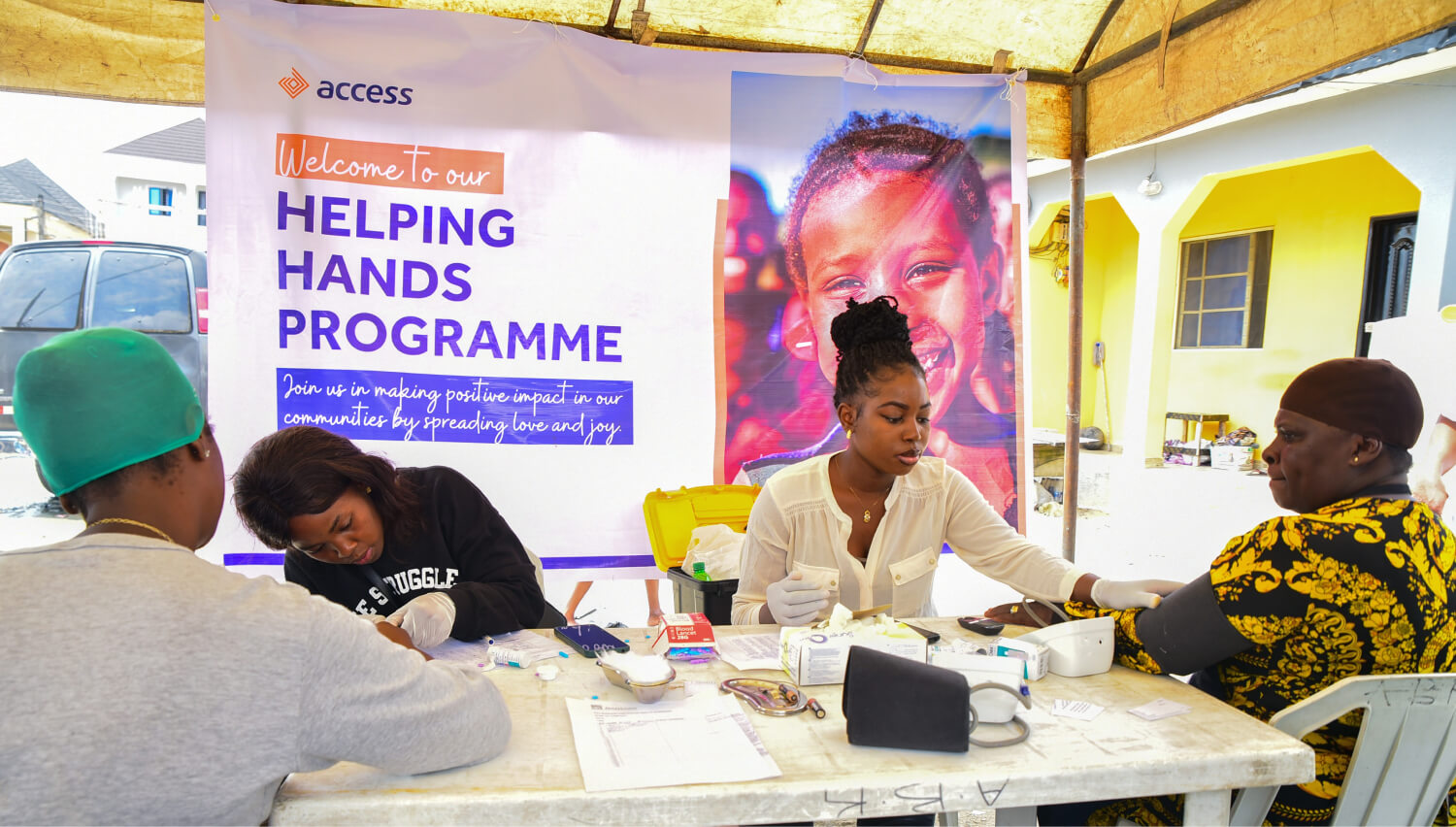Africa is on the march towards a more prosperous future in which all its citizens, young, old, male, female, rural, urban, of all creeds and backgrounds are empowered to realise their full potential and live with satisfaction and pride about their continent. A future with healthy, well-educated people living in robust and developed economies. However, this progressive march towards the Africa we want cannot be achieved without the sustained and impactful partnership between the public and private sectors.”
– OMOBOLANLE VICTOR-LANIYAN, HEAD, GROUP SUSTAINABILITY, ACCESS CORPORATION
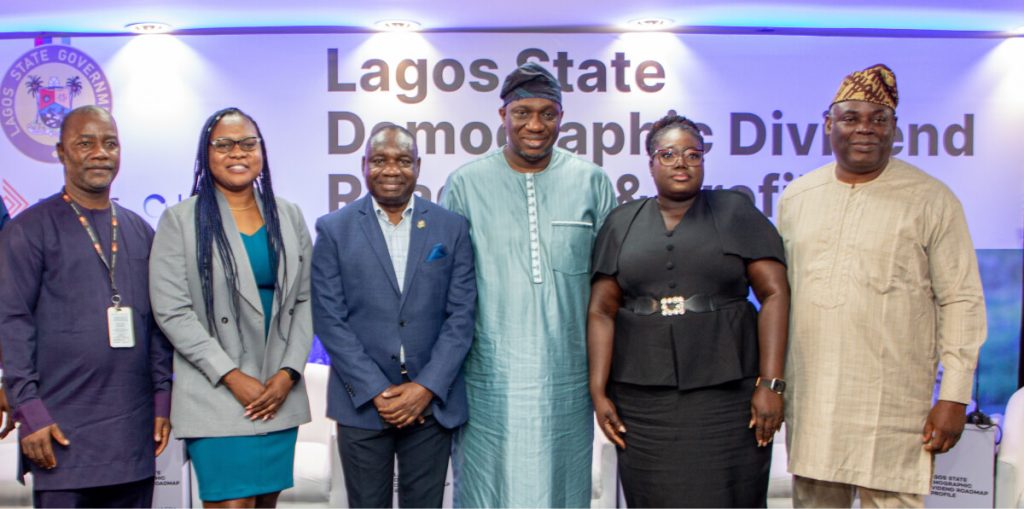
L-R: Dashe Dasogot, Head, Population and Development Unit, United Nations Population Fund; Rhoda Robinson, Executive Director, HACEY Health Initiative; Gbenga Omotosho, Honourable Commissioner for Information and Strategy, Lagos State; Sam Egube, Honourable Commissioner for Economic Planning and Budget, Lagos State; Omobolanle Victor-Laniyan, Head, Group Sustainability, Access Corporation, and Lanre Olaniyan, Professor in the Department of Economics, University of Ibadan at the Lagos State Demographic Dividend Roadmap and Profile official launch event held at the Access Towers in Lagos on Thursday.
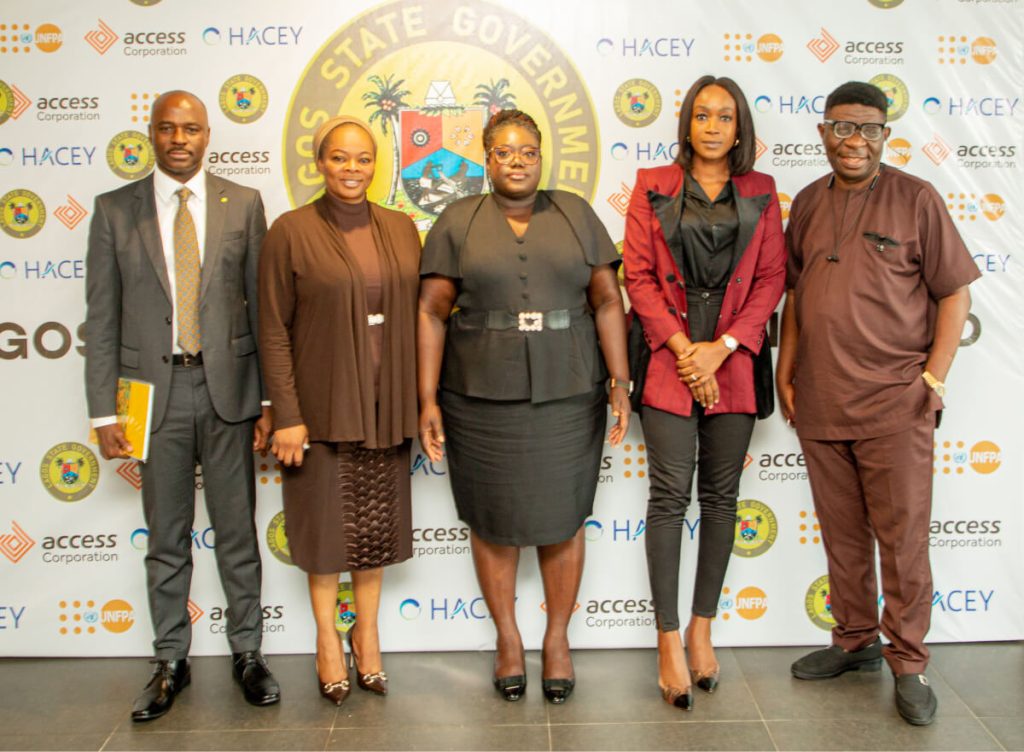
L-R: Bernard Orji, Partner, Core Business Operations, Delloite; Morise Atoki, Chief Executive Officer, African Business Coalition for Health; Omobolanle Victor-Laniyan, Head, Group Sustainability, Access Corporation; Bekeme Masade, Chief Executive, CSR-in-Action, and Victor Okhai, President, Directors Guild of Nigeria at the Lagos State Demographic Dividend Roadmap and Profile official launch event held at the Access Towers in Lagos on Thursday.
Without guaranteeing that all men, women, and children have the dignity and human rights to develop their potential, protect their reproductive health and rights, find fulfilling employment, and contribute to economic growth, sustainable development cannot be achieved. Governments must understand the size, sex, location, and age structure of their current and future populations in order to develop policies and investments that will secure that future.
The United Nations Population Fund (UNFPA) postulates that countries entering a period in which the working-age population has good health, quality education, decent employment, and a lower proportion of young dependents are those with the greatest demographic opportunity for development. In such countries, there is generally more freedom for women to enter the formal workforce, larger investments per child, and more household savings for the elderly when there are fewer children per household.
An African View
Many African countries have failed to significantly transform their economies and raise the living standards of their populations despite having achieved respectable economic growth of over 4% annually over the past two decades. Many countries have remained vulnerable to external shocks like commodity price volatility and, most recently, the Covid-19 pandemic because of the lack of or slow progress in economic transformation.
Prior to the pandemic, the continent was already experiencing a general slowdown in growth and the reduction of poverty, albeit with significant regional variations. For instance, average GDP growth from 2015 to 2019 ranged from 1.2% in Nigeria to 8.9% in Ethiopia, while the headcount ratio of people living in poverty at USD 1.90 per day varied from 27.3% in The Gambia to 85.8% in the Democratic Republic of Congo. For the expanding workforce, Africa’s growth hasn’t produced enough opportunities for lucrative employment and the employment difficulties have been made worse by recent global events. According to a World Bank estimate, the pandemic may have caused 34 million people in Sub-Saharan Africa to live in extreme poverty in 2021. Despite the bleak outlook, the pandemic has provided a chance to look ahead and consider how Africa could “build back better.”
The working-age population in Africa (those between the ages of 15 and 64) was estimated to be 750 million in 2019 and is projected to reach 1.1 billion by 2035, with young Africans (those between the ages of 15 and 24) joining the labour force at a rate of about 20 million each year. Young people are populating Africa in record numbers, which could lead to either a demographic dividend or a demographic time bomb. According to a “business as usual” scenario, if current trends continue, Africa will miss the demographic dividend in 2030. This is based on trends in fertility, education, job creation, climate risks, and economic growth. Instead, a more upbeat scenario demonstrates how the dividend can be attained as a result of successful policy measures.
In Europe, for example, the demographic shift took place more than a century ago. Due to decreased mortality and fertility during this time, the population was able to adapt socially and economically. As a result, families’ investments in their kids’ health and education as well as women’s participation in the workforce have increased as infant mortality has decreased. Due to the early adoption of more sophisticated technologies like vaccines, antibiotics, and modern contraceptive methods, Asia and Latin America have undergone rapid transition rates.
Reducing fertility rates now is crucial to achieving sustained and sustainable growth that enhances people’s well-being, as this will hasten demographic transition and lower the dependency ratio. In comparison to other developing areas, this transition is more gradual. Fertility rates continue to pose a risk of unpredictability in the dynamics of the continent’s long-term development, despite the continent’s recent rapid and robust economic growth rates. The only way to achieve this complex process of declining fertility at the family level is for women to have access to information about family planning options and voluntarily use modern contraceptives to do so. As a result, the information component is crucial to the process. In developing nations, about 25% of women have unmet family planning needs.
Whilst many-sided and simultaneous steps are needed to achieve this bold vision, some very clear and obvious steps must be taken without delay. The responsibility rests with all Africans, citizens and leaders alike, at the continental, regional and state levels to ensure there are adequate investments in the development of our continent’s greatest asset: its people. A peaceful and secure Africa requires an empowered populace, particularly the new generation of youth; a well-developed continent depends on the education and skills of Africans. Undoubtedly, none of our aspirations would be met if disease and poor health continue to affect millions of our citizens.
That said, if Africa is to stand a chance of rewinding the hands of time to achieve its Demographic Dividend targets come 2063, the private sector has to become a more significant player in influencing policies and allocation of resources and human capital development.
Turning the Tide
The role of private sector organisations in driving sustainable development in any given society cannot be overstated. This is particularly because of the ability of the sector to contribute significant capital investment in the face of dwindling public resources.
This is a responsibility organisations like Access Corporation take very seriously and this is evident in its implementation of sustainability-led initiatives touching on the four thematic pillars of the demographic dividend – namely Health and Well-being; Education and Skills Development; Employment and Entrepreneurship, as well as Governance and Youth Participation.
By taking bold steps, matching government actions across Africa stride for stride Access Corporation is living up to its sustainability promise to ensure the continent’s potential is realised. Most recently, the Corporation partnered with the Lagos State government, HACEY Health and the UNFPA to launch the implementation of the Lagos State Demographic Dividends Roadmap and Estimation Profile. The reason for this, the financial powerhouse explained was done in a bid to “add value to governance in terms of informed plans and programmes targeted at sustainable economic growth and development of the state but also serve as a blueprint for other states to take ownership of their quota to ensure the national SDG milestones are achieved.”
Access Corporation’s journey towards aiding governmental efforts in realising demographic dividends didn’t however start with the launch of the roadmap. For many years, the institution has championed the need for sustained private-public partnerships in bridging pertinent sustainability gaps. And as an institution that is about action, it has directly and directly partnered with and supported several local and continental initiatives including Project Agbebi – An initiative that addresses the fundamental issue of upskilling Traditional Birth Attendants in a bid to reduce mortality rates at childbirth; and the #All4One Initiative – A social project which has impacted over 15,000 people within Nigeria through skill acquisition programmes and access to finance.
In its capacity as co-chair of the Corporate Alliance on Malaria in Africa (CAMA), Access Corporation has played a crucial role in increasing the private sector’s contribution to the fight against malaria in Africa, launching the End Malaria Project in Lagos, Ebonyi and Kaduna. Through this initiative, the Corporation will be galvanising private sector resources and capabilities for sustained support towards reducing the incidence and prevalence of malaria in the most endemic regions in Africa by 2023, starting with Nigeria.
Scaling our partnership with organizations like HACEY, the corporation has also worked to improve access to sexual and reproductive health information and services for hundreds of thousands of young people across Nigeria. This ongoing partnership has already seen the organisation distribute over 200,000 birthing kits to pregnant women and conduct over 50,000 HIV testing and counselling for young people in western Nigeria.
Access Corporation’s support of initiatives like Project Enable is also ensuring that thousands of young people living with a disability acquire digital skills and transform their lives. Additionally, the Corporation’s investment in the ACT Foundation helps provide a platform for many nonprofits to receive funding towards implementing projects that have directly reached over 1,000,000 Nigerians, especially young people and women, with education, jobs and health information and services.
The employee volunteering scheme of the Corporation is also focused on mobilising the resources and competence of its employees to scale impact at the grassroots level. Various groups have championed youth-led interventions focused on improving health, increasing access to jobs, training and education, and supporting young girls to live to their full potential.
It is however important to note that public-private partnerships are delicate things that need to be handled with care – leveraging the powers of communication. Both parties must be clear about their respective expectations from the partnership. Whom do they want to reach? What is the timeline? What are the values of each party and is there an alignment with respective visions? What are the boundaries that must not be crossed? Who is responsible for what? These are questions that must be answered with the understanding that the partnerships should be aimed at pooling resources and not acquiring singular gains.
This process might not be the most pleasant as compromise is inevitable but time and again, it has been proven that the benefits of these partnerships far outweigh the perceived inconvenience.
Africa is on a steady journey towards achieving its potential, but it will require the dedication of all stakeholders, including the private sector, the research community, and members of civil society. This collaboration will be pivotal to ensure we give future generations a fair chance at a sustainable future.
After all, “Our demographic dividend is our strength.” – Narenda Modi



